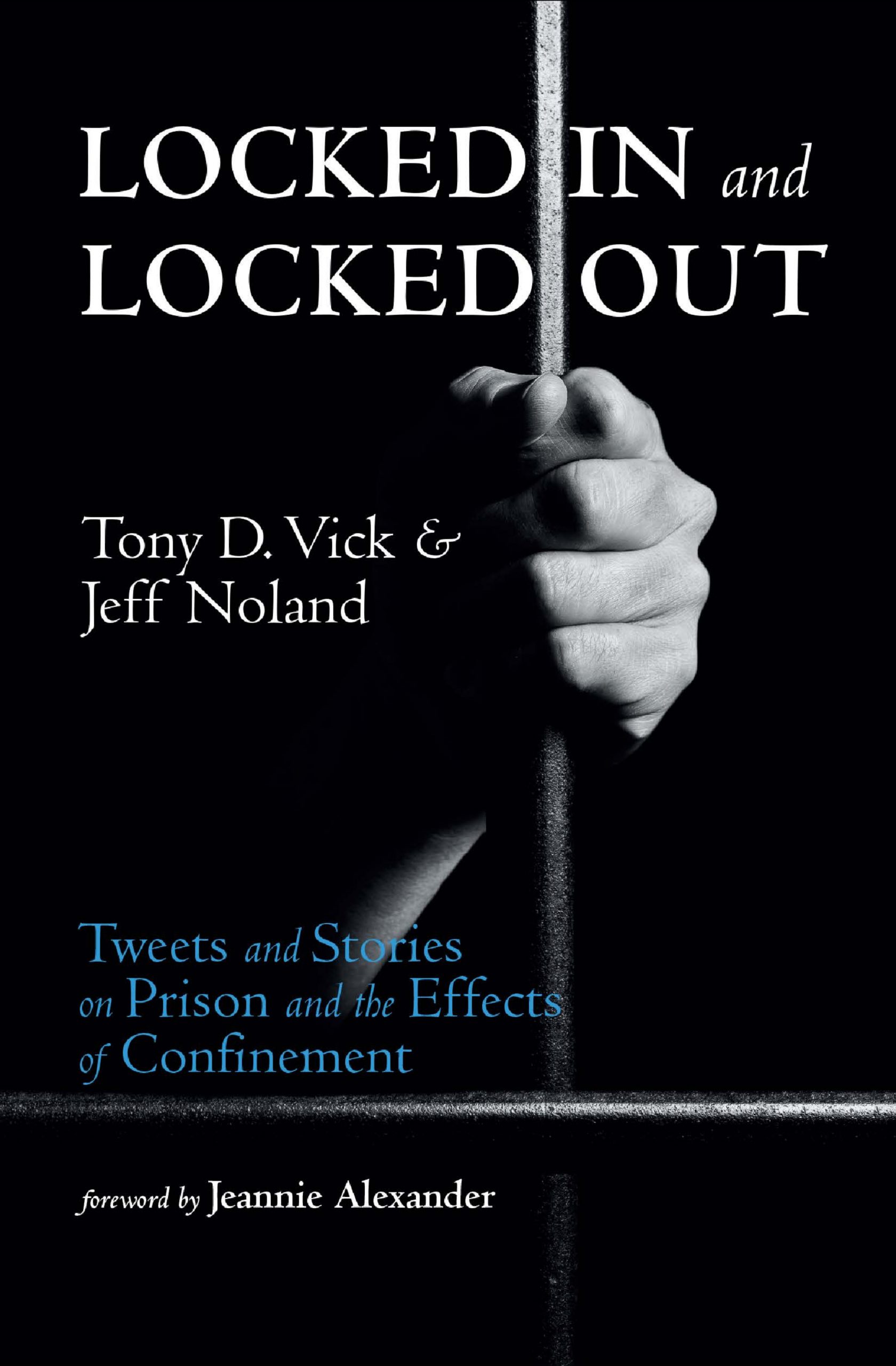Often people will say that when you leave prison you should try to forget it, walk away, and never look back. Fair enough: Anyone would wish to forget the horrors they had endured while in prison. But that’s simply not possible. People walking out the door of prison into the free world are resilient, remarkable beings who have survived the dehumanizing drama of life behind bars and managed to walk out alive. A testimony to the human spirit. But though they are resilient, they never forget the trauma they’ve endured.
Many times throughout the day on this side of the fence, I have to remind myself that I am capable, worthy, and resilient. The system that drives the forces of incarceration is set up to constantly reinforce the message that you are none of those things.
I have had to establish realistic goals for my freedom under the restrictions that the state still holds over me. Thinking too much about what I can’t do was preventing me from doing the things I could do.

Fresh out of the joint, the first thing I longed to do was to see my mother and hold her in my arms. It wasn’t as easy as hopping in the car in Tennessee, where I live, and driving to Texas, where she lives. I had to request permission from the supervision office to travel, giving my destination, the amount of time I would be gone, and who I would be staying with. This took time for them to approve. Delayed gratification has become my new normal.
In prison it was normal to have staff talk to me like a slave or a piece of property with no value. I was unprepared to encounter that same dynamic with the state offices that deal with people on the sex register. I did my time and adhere to the restrictions placed on me. Yet every time I report to the office, I am told to sit and wait, with no knowing how long my wait might be. In fact, it is not uncommon to wait for hours, only to then be told that no one will see me that day; I will have to return another day. When I am seen, the officer is frequently rude and disrespectful and can never answer any question that I have about my supervision. It makes it difficult to find and keep a job. Employers are rarely willing to accommodate an employee having to leave work for hours, only to have to do it all over again the next day because the scheduled appointment never happened.
So yes, I’m resilient. I took all that garbage and still enjoyed the visit with my mother, who had waited ten long years to have her son in her house. But as welcoming as my mother was, her home is not a place that I could live. Her residence was not approved by the state as an acceptable place for me to live. I could not live with my own mother because of the location of her property.
Anyone who commits a crime deemed to be of a sexual nature has two parts of their criminal sentence. There is the standard sentence: prison time or probation. Then there is another sentence that begins as soon as the first ends: the sex offender registry. In most states, the person’s name, picture, address, and job will be listed on the Internet for all to see, permanently.
Today’s sex offense registries have their roots in the 1990s, and are part of a larger tough-on-crime social movement. The national embrace of registries was fueled specifically by several high-profile cases of children being assaulted or killed by strangers. But this led to the passage of overly broad legislation such as New Jersey’s widely copied Megan’s Law. The official purpose of the registry is said to be administrative rather than punitive. It supposes that sexual “predators” are unable to control their urges, and the government is itself unable to do enough to keep them away from children and other vulnerable people, so the job of avoiding sexual predators needs to fall to the parents. By giving parents information about where the predators are, bad things are thought to be avoided.
More from our decarceral brainstorm
Every week, Inquest aims to bring you insights from people thinking through and working for a world without mass incarceration.
Sign up for our newsletter for the latest.
Newsletter
But nearly thirty years after the creation of the sex offense registry system, the evidence is clear: It does not succeed as a preventive tool. Though “stranger danger” cases understandably capture the public’s attention, such crimes account for a minuscule portion of sex offenses; the vast majority of victims are harmed by someone they know well, which registries are unable to address. Meanwhile registries have caught thousands of people in a tightly woven net of legal sanctions and social stigma. Registered sex offenders are constrained by where, with whom, and how they can live. In many states, people on sex offense registries cannot live with an adopted child, cannot work in public parks, cannot enter school grounds, cannot live in facilities for the chronically ill, cannot drive tow trucks, and cannot sell hearing aids. And these are only the official restrictions. Unofficially, finding someone who will rent you an apartment or hire you for a job is nearly impossible. Many offenders are harassed in person, and even more via social media, mail, and phone calls. Sometimes, even their families are harassed.
Most people are not sentenced to prison for life; their punishments are only supposed to last a certain amount of time. Yet in our current criminal legal system, having your life constrained and restricted, even after your sentence is over, has become a fact of life.
One of the most humiliating and dehumanizing events that occurs while you are incarcerated is the constant searching of your property by prison staff. Any person who works at the prison—be they a guard or the education secretary—has the right to enter your cell and go through all of your belongings, even read your mail. This was done countless times during my prison sentence and it never got easier or less devastating. Even when you know that you don’t have anything like drugs or shanks in your cell, you begin to worry about what they could possible find that will result in sanctions or even segregation time.
I thought all of that sort of treatment was behind me once I had completed my ten years of captivity and was released into the free world, but I was greatly mistaken.
After my release, and against tremendous odds, I had managed to find a job and a place to live. One day I was sitting on my front porch, enjoying my day off from work, when I received a phone call from officers who supervise people on the sex register. They told me to stay at home; they were on their way to conduct a routine search. Four officers soon pulled up and began searching everything inside my house and even my vehicle parked in the driveway. One officer stayed with me.
I noticed the neighbors, curious about the state vehicle parked out front and the uniformed officers examining my property, were all wide-eyed and I’m sure wondering what sort of vile character had moved into their lovely neighborhood. I wondered if they would start complaining to my landlord and whether he would in turn have second thoughts about renting to me and kick me out. I wondered if the officers searching my home were corrupt, because I had seen so many inside the prison do unscrupulous things when searching a cell.
All those helpless memories from prison—of my belongings being rummaged through and disrespected—came to the surface, and at that moment I was again that same slave of the state who had no rights or say so over my own person. After they finally left and I was alone, it seemed like my house had just been burglarized. All the hard work of finding my home, my safe place to dwell, had been violated. How could I ever feel safe?
I had thought that all of the trauma and craziness of prison was behind me. But it hit me that my new normal, even in the free world, was going to encompass a lot of the dehumanizing and degrading aspects that had been part of my ten years of incarceration. I had to find a way to deal with that truth both mentally and physically—because I could certainly see myself cussing out one of those officers tearing through my personal property and getting violated even further. God and a stiff drink were going to be needed.
My resilience continues to be tested. As I wrote the first draft of this essay, I was waiting for approval to travel for my stepfather’s funeral. My officer had said for weeks that everything would be approved for travel, but as I sat trying to write, I was in the pits of anger because I had still not received approval to travel. My attempt to write was paused to answer a call from my eighty-eight-year-old mother, wondering whether I would be able to make it in time. I could only tell her, “Mom, I love you and I’m sorry to have to put you through this.” She asked how long these restrictions would last. I told her, “Until I die, Mom.”
The Tennessee Department of Corrections would be happy for me to not push back or exercise my right to travel to see my family during tragedy. It has designed the entire system to make sex offenders powerless within even their own lives, and neither heard nor seen within society at large. But instead I test my resiliency by not backing down to this unjust system. I was, with no time to spare, finally granted permission to travel to the funeral.
I continue to test my resilience by accepting that some sort of advocacy for change has to be a part of my future. I am finding ways to begin the uncomfortable discussion about what people on the sex registry deal with each day. I would also like to form a support group of people in my situation to discuss ways to improve our conditions and help each other out through the maze the state has created for us. I can’t simply be satisfied with how it is. Change has to happen, and I guess I must get moving on it.
This essay was adapted by the author from his book Locked In and Locked Out: Tweets and Stories on Prison and the Effects of Confinement, cowritten with Tony D. Vick.
Image: Felix Ngo/Unsplash

